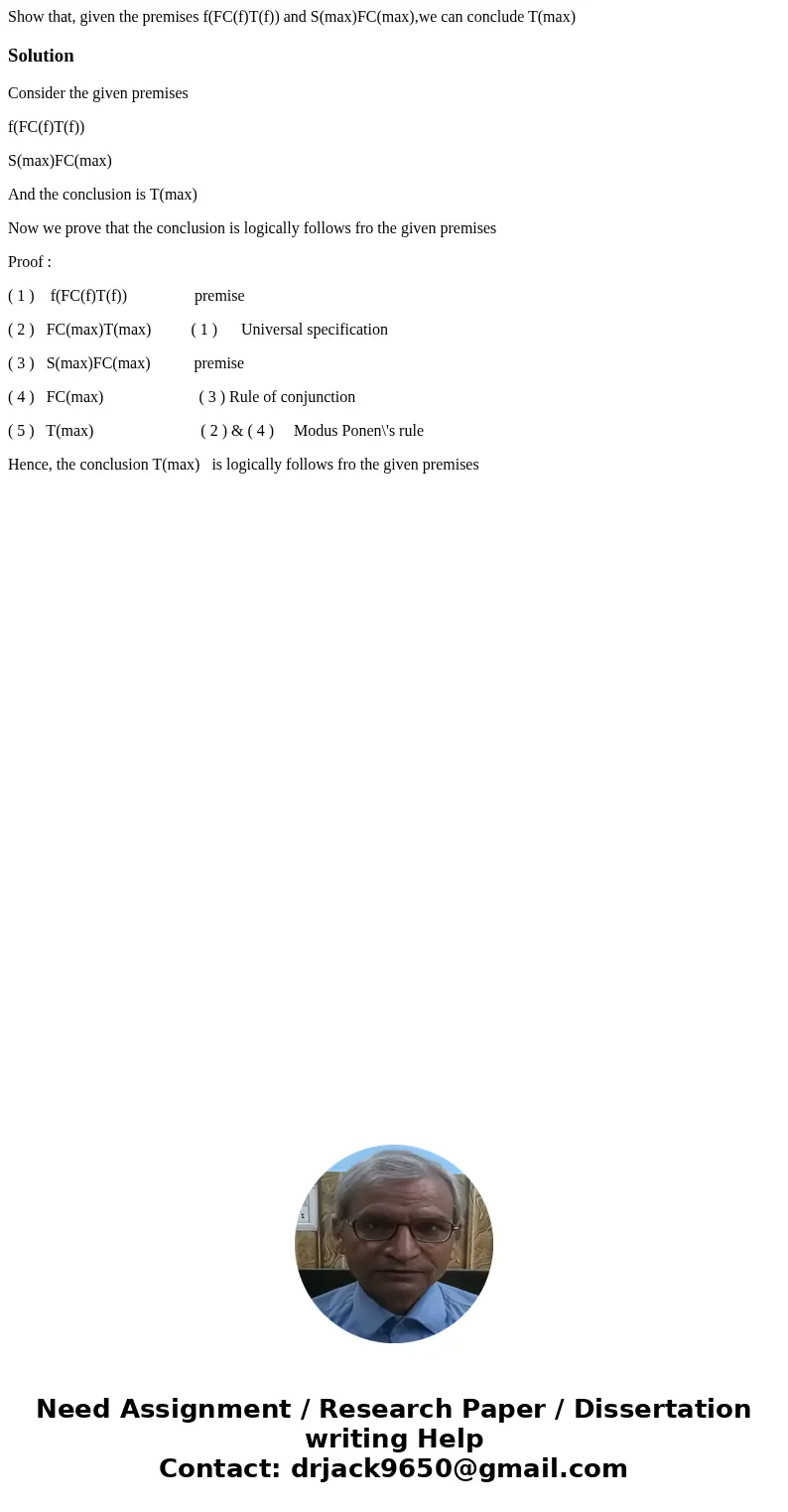Show that given the premises fFCfTf and SmaxFCmaxwe can conc
Show that, given the premises f(FC(f)T(f)) and S(max)FC(max),we can conclude T(max)
Solution
Consider the given premises
f(FC(f)T(f))
S(max)FC(max)
And the conclusion is T(max)
Now we prove that the conclusion is logically follows fro the given premises
Proof :
( 1 ) f(FC(f)T(f)) premise
( 2 ) FC(max)T(max) ( 1 ) Universal specification
( 3 ) S(max)FC(max) premise
( 4 ) FC(max) ( 3 ) Rule of conjunction
( 5 ) T(max) ( 2 ) & ( 4 ) Modus Ponen\'s rule
Hence, the conclusion T(max) is logically follows fro the given premises

 Homework Sourse
Homework Sourse